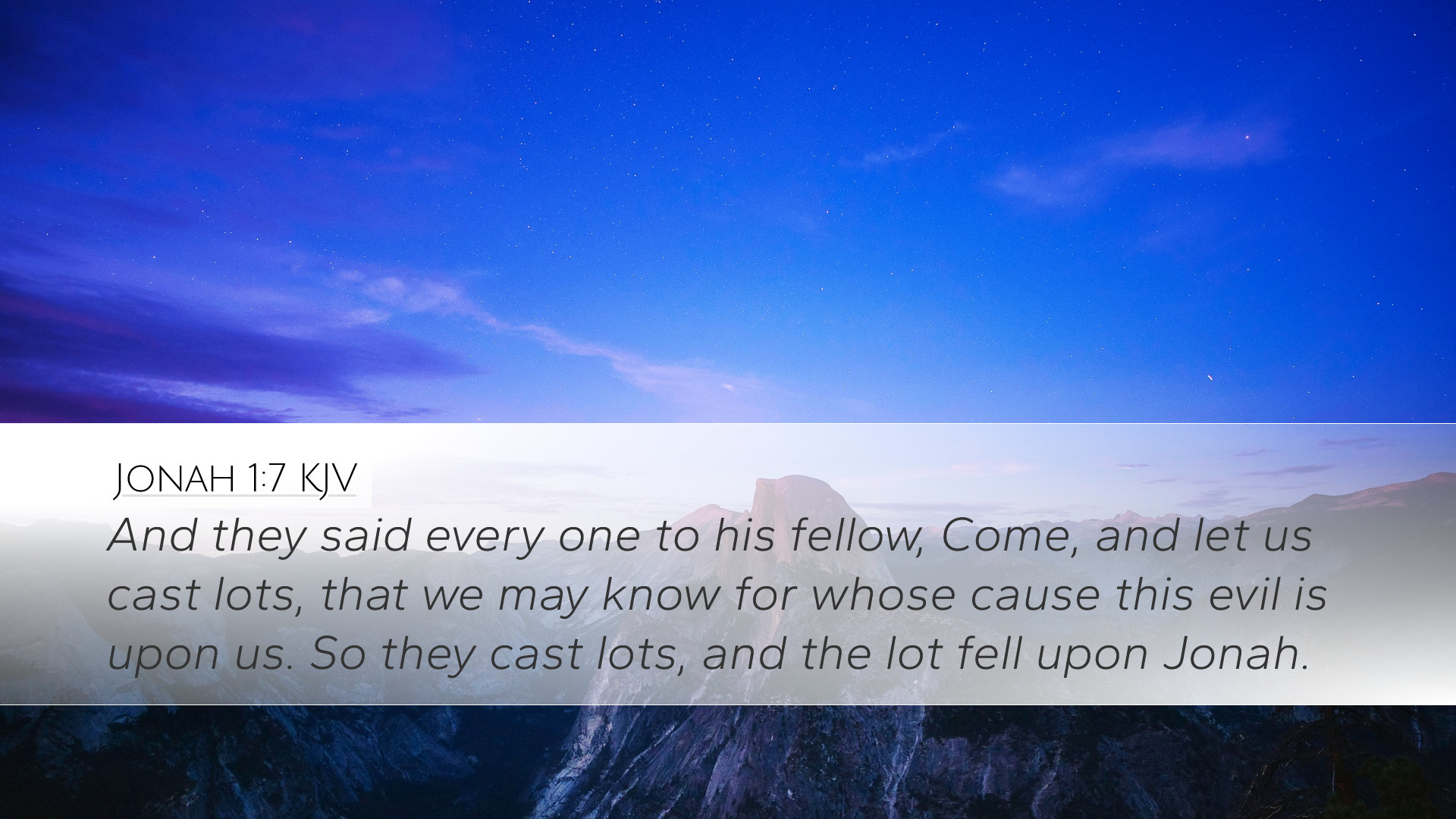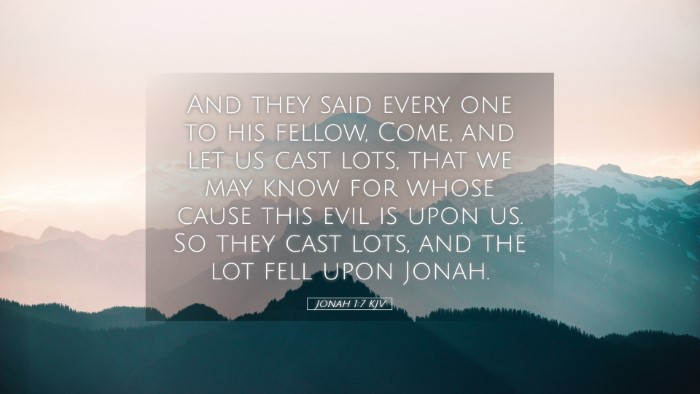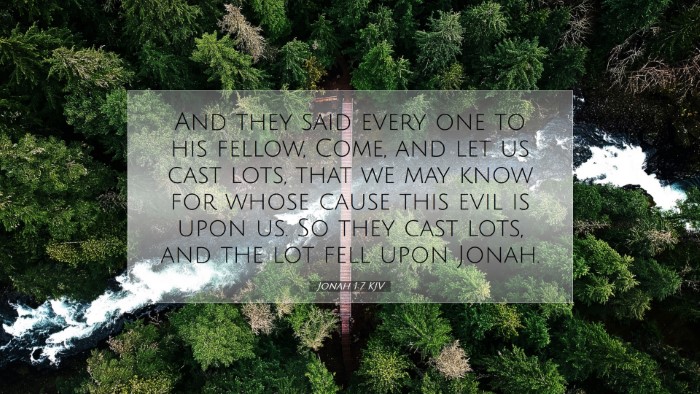Old Testament
Genesis Exodus Leviticus Numbers Deuteronomy Joshua Judges Ruth 1 Samuel 2 Samuel 1 Kings 2 Kings 1 Chronicles 2 Chronicles Ezra Nehemiah Esther Job Psalms Proverbs Ecclesiastes Song of Solomon Isaiah Jeremiah Lamentations Ezekiel Daniel Hosea Joel Amos Obadiah Jonah Micah Nahum Habakkuk Zephaniah Haggai Zechariah MalachiJonah 1:7
Jonah 1:7 KJV
And they said every one to his fellow, Come, and let us cast lots, that we may know for whose cause this evil is upon us. So they cast lots, and the lot fell upon Jonah.
Jonah 1:7 Bible Commentary
Commentary on Jonah 1:7
In Jonah 1:7, we encounter a pivotal moment in the narrative as the sailors cast lots to determine the cause of the storm that threatens their ship. This verse offers rich theological insights and practical applications that resonate throughout Scripture.
Text of Jonah 1:7
“And they said every one to his fellow, Come, and let us cast lots, that we may know for whose cause this evil is upon us. So they cast lots, and the lot fell upon Jonah.”
Context and Background
The Book of Jonah is unique in its narrative approach, presenting a story not only about the prophet's mission but also about God's mercy and sovereignty. Chapter 1 opens with Jonah’s flight from God’s command to go to Nineveh, illustrating themes of disobedience and divine pursuit.
The Situation at Sea
The storm that arises is no ordinary tempest; it is described in verse 4 as “a mighty tempest.” The sailors, seasoned mariners, recognize the supernatural nature of the disturbance, and it leads them to seek divine insight through the casting of lots.
Insights from Public Domain Commentaries
Matthew Henry
Henry notes that the casting of lots was a common practice in ancient Israel for discerning God’s will. It underscores humanity’s instinct to seek answers when faced with dire circumstances. The sailors, though not Hebrews, highlight a universal recognition of the divine. Their urgent plea reflects a crucial point: even the ungodly recognize the sovereignty of God over nature.
Albert Barnes
Barnes emphasizes the contrast between Jonah's slumber in the hold and the anxiety of the sailors. He argues that this reflects spiritual apathy versus spiritual alertness. In casting lots, the sailors seek a tangible answer to their plight, demonstrating a reliance on divine intervention, albeit through an imperfect means.
Adam Clarke
Clarke brings attention to the phrase “the lot fell upon Jonah,” highlighting the belief in God's providence even in the method of divination used by the sailors. This illustrates that God's sovereignty can work through various means, even those the faithful might not view as appropriate. Clarke further notes that the sailors’ actions lead to a swift discovery of Jonah's disobedience, drawing a clear line between personal sin and collective suffering.
Theological Implications
- Divine Sovereignty: The casting of lots points to God's predestination and control over every situation, regardless of human actions.
- The Nature of Sin: Jonah's rebellion causes not just personal ramifications but also collective distress, reminding us of the interconnectedness of community and moral responsibility.
- Seeking the Divine: The sailors provide a model for searching out divine truth in desperate times, exemplifying how crisis can lead to acknowledgment of God.
Practical Applications
In reflecting on Jonah 1:7, pastors and theologians can draw several practical applications:
- Awareness of Personal Responsibility: We must recognize the weight of our actions on others and the broader community.
- Seeking God in Crisis: The practice of seeking God's wisdom through prayer and communal discernment is vital in the face of difficult circumstances.
- Embracing God's Sovereignty: Trust in God’s overarching plan and providence, even when facing storms in life.
Conclusion
Jonah 1:7 serves as a critical juncture in the narrative, illustrating both human folly and divine intervention. The insights drawn from public domain commentaries reveal profound truths about God's nature, our responsibilities, and the importance of seeking Him amidst life's tempests. Such reflections are invaluable for pastors, students, and scholars, fostering deeper engagement with the text and its implications for faith and practice.


